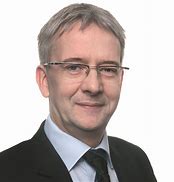Bakkafrost hit by ‘difficult conditions’

THE Faroese salmon farming company Bakkafrost today announced lower than expected results for the final quarter of 2018, blaming ‘difficult market conditions’.
Total operating income before interest and tax (EBIT) fell by almost a third to 230.5 million Danish kroner (DKK) compared to DKK 331.2 million in Q4 2017.
But harvested volumes were up from 11,500 tonnes to just over 12,200 tonnes, gutted weight.
The combined farming and VAP segments made an operational EBIT of DKK 207.7 million ( DKK 265.4 million in Q4 2017) while the farming segment made an operational EBIT of DKK 204.4 million (DKK 228.8 million).
CEO Regin Jacobsen said: ‘Difficult market conditions and limited market access for a period resulted in a weaker than expected result in the farming segment for the fourth quarter.
‘We are pleased, however, to experience more activity in the VAP segment, due to increased contracts for our VAP products.’
He said 2018 had been an ‘eventful year with different challenges’, but the company was satisfied with the operation and the results for 2018.
‘A lot of effort has also been put into our expansion activities in 2018, and we have now started operations in our new harvesting plant in Suðuroy. We plan to further expand our farming operation in Suðuroy this year.’
Bakkafrost said in an accompanying statement that revenues in the farming segment during the final quarter were negatively affected by a combination of circumstances.
‘Bakkafrost’s harvesting plant in Glyvrar faced banned access to the Russian market in Q4 2018 and experienced disruption in deliveries to other high-end markets from the new harvest plant in Suðuroy, due to delay in the issue of certificates to these markets.’
The group said it aimed to have a balanced market diversification to reduce risk. The board will propose a dividend of DKK 8.25 (NOK 10.70) at the annual meeting later in the year.
Picture: Bakkafrost CEO Regin Jacobsen

